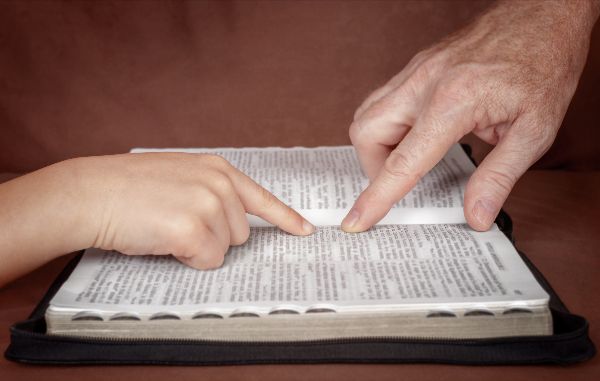Meeting the Protestant Challenge Head On

“You have a fine way of rejecting the commandment of God, in order to keep your tradition…thus making void the word of God through your tradition which you hand on.” -Mark 7:9,13
“Where’s that in the Bible?”
Any Catholic who talks religion with Protestants has at some time been challenged with this question. It stems from the Protestant belief that we shouldn’t accept any doctrine that isn’t explicitly found in the Bible, since it alone is our infallible rule of faith—a belief known as sola scriptura (Latin, “scripture alone”).
Much of Catholic apologetics, especially since its revival in the late eighties, has centered on answering that question, offering positive arguments for the biblical basis of Catholic doctrine.
But, since Catholics don’t operate on the principle of sola scriptura, we don’t believe that every Christian truth has to be explicitly found in Scripture. We also appeal to truths revealed by God and preserved outside of the Bible in Sacred Tradition.
For example, Protestants may ask, “Where is Mary’s bodily assumption in the Bible?” But a Catholic can simply reply, “I don’t need to justify it with Scripture, since I can accept it on the basis that it’s a part of Sacred Tradition as infallibly defined by Pope Pius XII" (Munificentissimus Deus, 1950).
Of course, a Protestant is not going to find the above response persuasive (and it would open up other debates about Christian teaching authority). But at least he can’t charge a Catholic with incoherence in his belief.
There is another kind of Protestant challenge, however. This kind does charge a Catholic with incoherence:
“How can the Catholic Church teach X when the Bible says Y?”
For example, how can the Catholic Church teach that Mary remained a virgin after Jesus’ birth when the Bible says that Jesus had brothers (Matt. 13:55)?
Or how can the Catholic Church teach that works have a role to play in our salvation when the Bible says in Romans 3:28 that “we are justified by faith and not by works of the law?”
This is the kind of challenge that a Catholic must meet, because whatever the Church teaches, even if derived principally from Sacred Tradition and not the Bible, can’t contradict the Bible.
Scripture and Tradition are two streams of revelation that flow from the same source, God.
Our task as Catholics, therefore, is to show that Catholic teaching doesn’t contradict those Bible passages that some Protestants think pose a threat to it.
In my new book, Meeting the Protestant Challenge, we'll examine fifty challenges that Protestants commonly make from the Bible, covering a variety of topics concerning Church authority, Scripture and Tradition, salvation, the sacraments, Mary and the saints, eschatology, and Catholic life and practice.
Most of the challenges come from mainstream Protestantism, but some come from smaller groups within Protestantism, such as Seventh-day Adventists.
I'll teach you a series of ways to meet these challenges, ultimately showing that the challenges don’t succeed in proving Catholic beliefs to be contrary to the Bible. Following these is a counter-challenge you can propose to help your Protestant friend think more critically about his own assumptions.
Of course, these fifty biblical challenges don’t exhaust the challenges that Protestants make against Catholic teaching. But they do offer a good sampling of what a Catholic might encounter.
I hope this book will help you be more efficient in your conversations with Protestants. Also, I hope it will strengthen your own faith, helping you to know that in embracing Catholic teaching you are not “making void the word of God through your tradition which you hand on” (Mark 7:13).
If you want to find out more, pre-order your copy of Meeting the Protestant Challenge today!
Recent Posts
-
Are We Superior to the Early Christians?
If the early Church was the Catholic Church, why can’t we say that Christians just lost their way ea …Jul 15th 2024 -
Did the Early Christians Get Things Wrong?
You can find countless variations of the claim that early Christians believed Protestant things: …Jul 1st 2024 -
How to Respond When the World Tells Us We Can "Build Our Own Deity"
The necessity of revelation and of knowing God on his terms is not accepted in our culture today. A …Jun 22nd 2024









